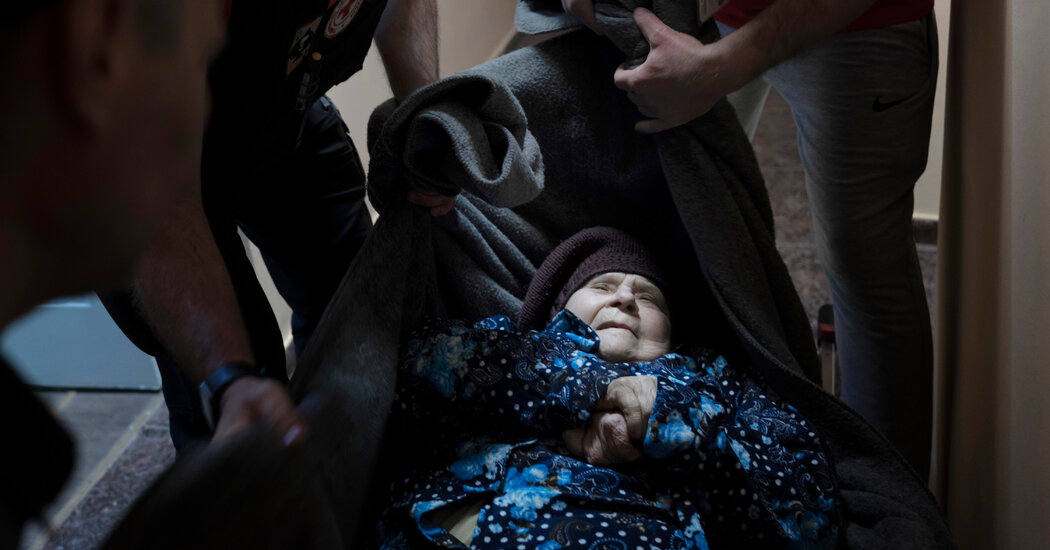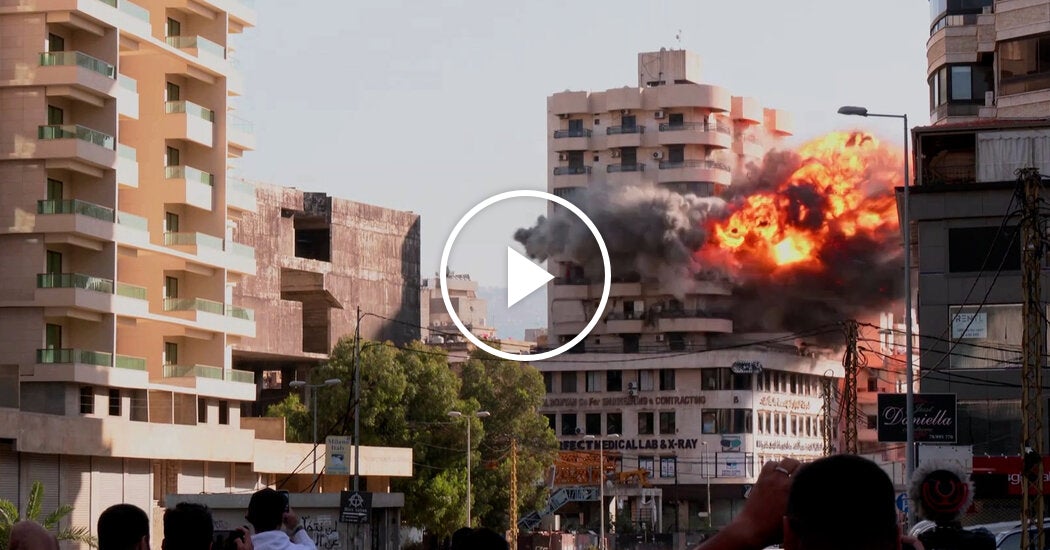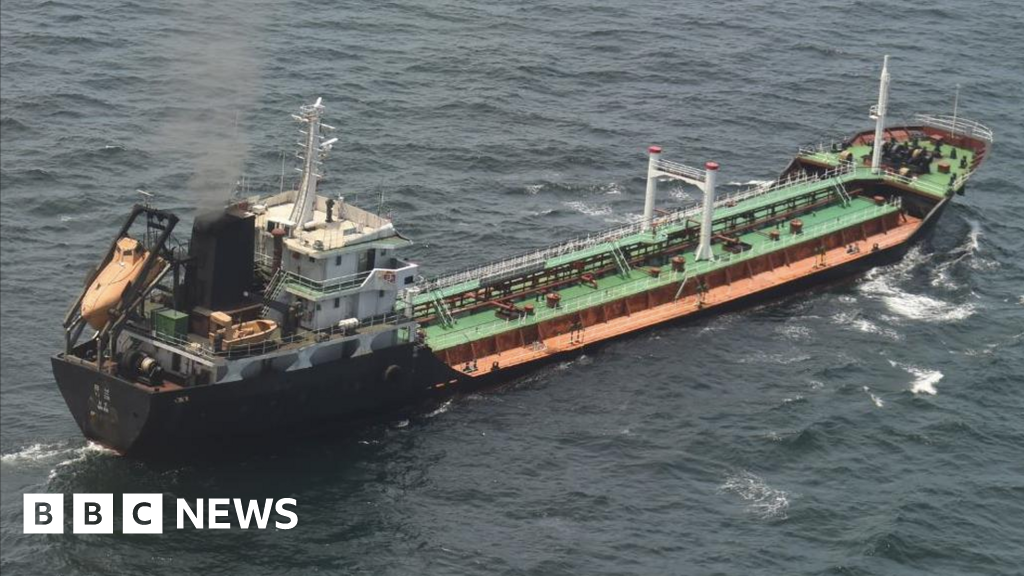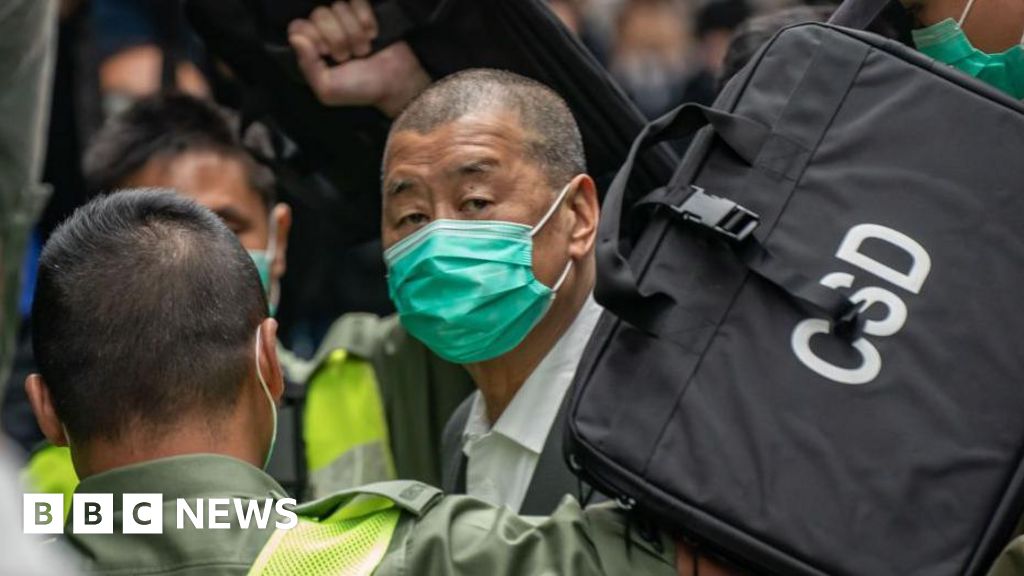As fighting continued to flare along the Russia-Ukraine border on Saturday, civilians fleeing for their lives stepped out of evacuation vans one by one, some on unsteady legs.
An older woman struggled with two large, confused dogs. A boy clutched his birth certificate, laminated and worn. An older couple grumbled at each other about who was going to lug their heavy bag. Another woman gingerly carried a wire cage holding a bright green parrot.
Even the bird inside, which provided the one drop of color in a grim tableau, seemed desperate to flee the shelling, said the woman, Natasha Radchenko.
“He was shaking,” she said. “And hiding.”
After two long years, the war in Ukraine keeps finding new zones of misery.
Over the past two days, several thousand civilians who had hung on through some very tough times finally abandoned their homes in Ukraine’s northeast after the Russians opened a new front.
On Friday at dawn, Russian troops launched a complex attack with aircraft, artillery, infantry troops and armor, surging across the border near Kharkiv, Ukraine’s second largest city. By all accounts — and by the shudders of enormous bombs hitting the ground not far from the evacuation point — the two sides are now locked in heavy fighting over a string of villages just a few miles inside Ukrainian territory.
By Saturday evening, it wasn’t clear who was winning. The Russian Defense Ministry claimed to have captured five border settlements, which Ukraine denied, though one independent military analyst said that geolocated footage showed Ukrainian drone strikes on presumed Russian armor that had, indeed, crossed the border. Ukrainian officials said that they were counterattacking and that the Russians had advanced no more than three miles beyond the border.
Military analysts say they believe the incursion may be part of a wily Russian strategy, not necessarily to open a new line of attack on Kharkiv but to suck away Ukraine’s forces from other battlefields where the Ukrainians are already worn out and stretched thin.
“It is likely the coming weeks will be a very grim affair for the Ukrainian ground forces in the east,” said Mick Ryan, a retired Australian general and fellow at the Lowy Institute, a Sydney-based research group, in an initial assessment of the offensive.
“While the attacks at present appear to be small in scale,” he said, the purpose is to “dent Ukrainian morale — both civilian and military.”
Mr. Ryan added, “If the Ukrainians decide to hold ground at all costs, they will lose more of their increasingly smaller army.”
The result, he said, could be “a severe test,” and “one of the toughest moments for Ukraine in the war so far.”
Military analysts say the new offensive is unlikely to reach the streets of Kharkiv. The Ukrainian military has built elaborate defenses around the city — digging miles of trenches and sowing the landscape with glistening razor wire, mines and countless small cement pyramids that block tanks — “dragons’ teeth,” as the soldiers here call them. Ukrainian officials, from President Volodymyr Zelensky on down, have also indicated they are rushing in reinforcements.
Still, Ukraine must be careful how it responds, given its depleted military. Supplies from a long-delayed American aid package are only beginning to trickle to the front lines, leaving the Ukrainians more vulnerable than they have been in months.
Russian forces have been slowly but steadily chewing through Ukrainian defenses 150 miles south of Kharkiv, heading toward the small but strategically located old factory town of Chasiv Yar. Recent reports indicate that Russian troops have advanced close enough to a critical highway to nearly cut Ukrainian supply lines. The Russians have attacked the northern border area precisely to distract the Ukrainian forces in this area, Ukrainian military officials said, but they insisted that it wasn’t working.
The northern border villages where fighting now rages have been fought over before. The small town of Vovchansk has experienced the full war cycle — occupied by Russian troops after the full-scale invasion in February 2022, liberated that September and sporadically shelled since then.
Video footage widely circulated on Ukrainian media channels revealed the aftermath from the past two days of relentless bombardment: fires burning in Vovchansk’s streets, splintered trees, deserted, roofless homes and elegant, cream-colored buildings with giant holes punched through them, their walls turned into cascades of tumbling bricks.
This is the assaulted landscape that people are fleeing. At least three people have been killed, and residents said it was a miracle more had not. Until Friday afternoon, Tetiana Novikova had spent her entire 55 years in Vovchansk. She was born there, married there, worked in a factory there and raised two children there.
But the shelling became so terrifying that she and her family made the painful decision to turn their backs on the home where they had lived for decades and jump into a van driven by a volunteer evacuation team. On Friday evening, she arrived with her elderly parents, shaken, hungry and a bit lost, at a Kharkiv school that has been turned into a reception center for displaced people.
The only ones left in Vovchansk, Ms. Novikova said, “are the old and the disabled, and they can’t move.”
“If a missile hits where they live,” she added, “the streets will be full of dead bodies.”
In recent days life in her town had become untenable: no phone service, electricity, internet and not much food. All the supermarkets were closed, as was the outdoor market. Even Ukrainian soldiers had left, residents reported, though Ukrainian officials have said troops are still defending Vovchansk, perhaps from the outskirts.
“It’s impossible to go back,” Ms. Novikova said. “The Russians are destroying everything. They are erasing streets.”
While her family was hunkered down during a recent air raid, she said that a Russian bomb had taken out a nearby school. The blast wave was so big it shattered windows and rocked homes blocks away.
“And that’s just one bomb,” she said. “They are dropping dozens.”
Oleksandra Mykolyshyn contributed reporting from Kharkiv, and Marc Santora and Constant Méheut contributed from Kyiv, Ukraine.










